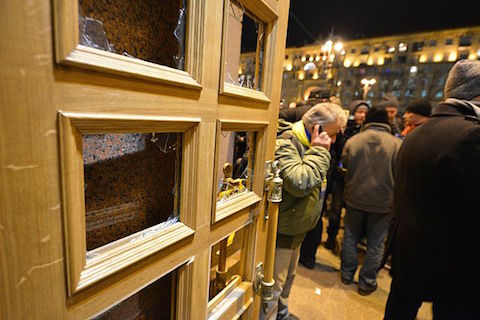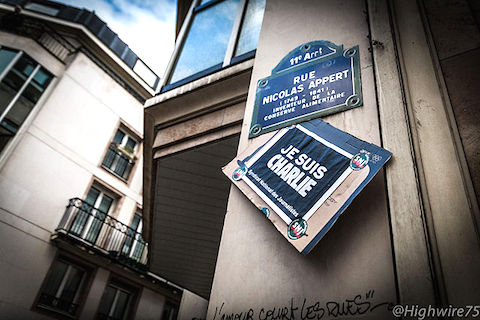
Incident Analysis: Shot with your own gun.
Lots of folks were out partying on Superbowl weekend, and Matthew Haight of Snohomish, WA was among them. After the game he headed home to his apartment, but what he couldn’t have known is that he was about to fumble a self defense attempt.
When he got to his apartment he noticed the door was unlocked, and he entered to find himself face-to-face with a burglar. Matthew instantly decided that he needed to retrieve his unloaded gun from the closet where it was kept, and he made his move to do just that.
Unfortunately, the burglar saw his end run and followed him into the bedroom. While Matthew attempted to load and fire the gun, the burglar grabbed his arm, twisted the gun into Matthew’s side — and then someone pulled the trigger.
The burglar apparently realized that something bad had happened as he backed off, hands in the air, and then ran out. Matthew was left in a pool of his own blood; the bullet had traveled through his stomach and colon, and came out his back to lodge in the closet wall. He was, at the time this story was broadcast on local TV, expected to take six weeks to recover.
It could have been worse, however, and he probably knows it.
Where did poor Matthew, who works as a security guard, go wrong — and what can we learn from his misfortune?
Let’s start at the beginning. He arrived home to find his front door unlocked. Was it unlocked — or was it forced open? A quick look would probably indicate which, and that little look is what needs to determine the next course of action. If this happens to you, and you see the door was kicked or pried open, that’s not the time to enter and find out what happened! Back off, call 9-1-1, and let them come check the situation. (I’d recommend staying in view of the door, so that you can describe any suspects, but stay well away. If they have your precious television, let it go — it’s not worth having multiple bullet holes in your digestive system!)
I’ll add that this is yet another case where a flashlight really comes in handy. Maybe it’s dark in the corridor or landing where your apartment door is, and you can’t easily see enough detail to determine why the door is open. A flashlight in your pocket can illuminate the situation and help you see the telltale signs of forced entry.
If the door’s just unlocked? Well, now you have a decision to make: do you go in? You could have left the door unlocked when you went out; one of your friends or relatives to whom you gave a key might have come to visit. Whatever the case might be, the unlocked door could be completely innocent.
Do you go in, or call the cops and wait? This is a tough decision, and I’d love to simply say “call 9-1-1.” The trouble is that it’s not that cut and dry for a lot of people. In some jurisdictions there isn’t money to fund patrols to handle scared citizen calls, and those go straight to the bottom of the pile (or simply ignored altogether.) In other places false alarms are treated like, well false alarms — and the caller pays a fine. In an increasing number of communities there are no longer 24/7 police patrols, and the caller is told to handle it him or herself. I’ll get to those specifics in another article.
We already know that, for whatever reason, Matthew went in and he and the burglar found each other. Matthew decided to run for his gun, but there’s always the possibility that it might have been better if he’d run out the door instead. Remember that running away is frequently an option; if you can do so safely, you should consider it. It’s almost certain that it would have saved him a bullet in the belly!
Matthew obviously wasn’t carrying his gun on his person. It’s tempting to blame him and say that he should “always” have his gun with him, but remember that this was Super Bowl Sunday — he was out partying. A responsible gun owner doesn’t drink while carrying a firearm; if you want to drink, then the firearm needs to stay locked up at home. If that’s the case here, then I applaud him for making the responsible choice.
Note, though, that I said “locked up at home”. The story doesn’t say specifically but I get the impression that the gun was hidden in the closet, not necessarily locked up. Perhaps he was worried the burglar would find the gun, which is what prompted him to go get it; a quick-access safe would have kept the bad guy from getting to it easily, and might have made the decision to run out the door a little easier.
Remember that there are only two safe places for your defensive firearm: on your person, or locked up. It wasn’t on his person, so I would have rather seen it secured in such a way that the bad guy couldn’t get to it easily.
Many people will say “he should have been carrying!” Would it have made a difference here? Maybe, but in the tight confines of an apartment he might also have found himself in a physical altercation with the burglar. When you’re in contact with an attacker the first tendency is to try to get to the gun, and it’s almost always a bad idea. Without good training in dealing with close-quarters defenses the outcome might have been the same.
Remember that just carrying a concealed handgun isn’t enough; you need to know the proper time and methods to employ it as well, especially in a situation like this. Simply saying “he should have carried his gun!” makes it sound like the gun would have saved him; maybe it would have, but you have to understand that the gun isn’t always a complete answer. Sometimes it’s not even the right one, especially in cases where there is no articulable fear of death or grave bodily harm. Unless the burglar actually attacked him, there may not have been sufficient legal grounds for the use of lethal force.
Unfortunately Matthew made errors that evening and paid for it in blood. Read his story, think about what you’d do in similar circumstances, and use his pain to help you make better decisions should it happen to you!
-=[ Grant Cunningham ]=-
- Posted by Grant Cunningham
- On February 20, 2015



